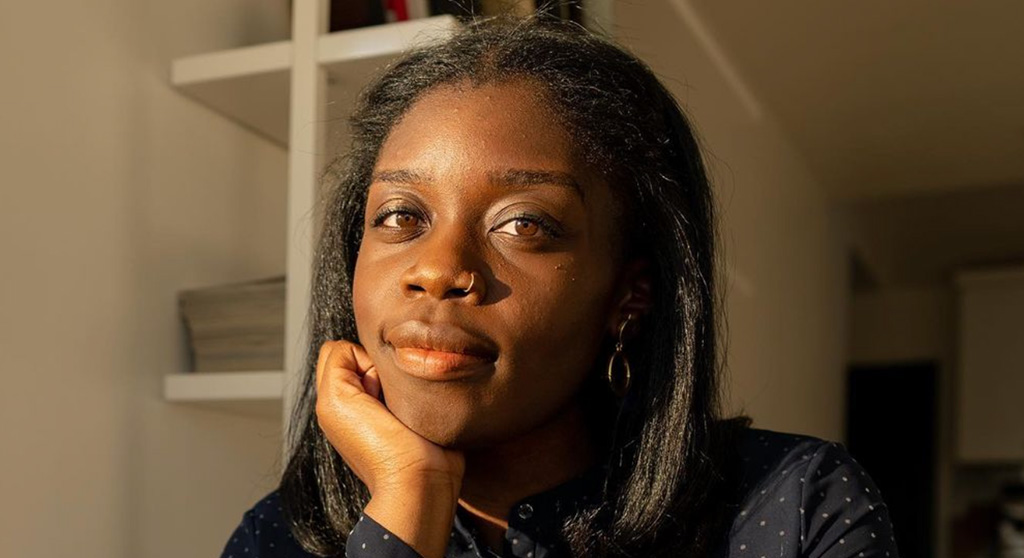Vanessa A. Bee explores belonging in memoir, ‘Home Bound,’ brings conversation to Porter
The debut memoir by Vanessa A. Bee, “Home Bound: An Uprooted Daughter’s Reflections on Belonging,” centers around the idea of home while taking readers on a journey spanning three continents – from her birth in Cameroon to adoption in Europe, immigration to Reno, Nevada, and graduation from Harvard Law School. Now a consumer protection lawyer and essayist in Washington, D.C., Bee brings her unique perspective, intriguing story and distinct literary voice to a Tuesday reading at Porter Square Books. We talked with her Wednesday on Zoom; the conversation has been edited for length and clarity.
![]()
What prompted you to write “Homebound”?
I wanted to examine the meaning of home. And what brought me to that was sort of twofold: In 2018, when I got the idea, the memoir from J.D. Vance, “Hillbilly Elegy,” was very popular. I knew that J.D. Vance had had a difficult childhood, and that he had lived in poverty and that he unexpectedly ended up at a prestigious law school. And I thought, well, that mirrors my path a little bit. Yet I drew very different conclusions from my journey – my politics are way to the left, where his are to the right, and the way he views his community is very different than the way I view mine and its role in supporting me to become a financially stable, emotionally stable adult. And we were in the Trump administration in Washington, D.C. which is a little weird because when politicians move in, you see them on the street and at your gym and at your restaurants. And I thought, oh, man, you know, Washington, D.C. really feels like home to me now, and I love it, and all of a sudden I’m concerned that these external forces, these outsiders, are moving here. Are they going to change this place that I love? Are they going to threaten my relationship to home? Those were some of the catalysts.
Which parts of your book make you proud?
This is going to sound so cocky, but I think I’m most proud of how it turned out. I’m a reader who gets bored fairly quickly, and I think as a writer I owe it to the reader to make the book interesting. And some of the early feedback from really busy friends was in the vein of, “I never have time to read, I have two kids, I’m so busy, and I haven’t been able to put down your book.” That makes me so proud. It makes me feel like, okay, I’ve written something engaging enough to earn your time.
What authors inspire you?
I tend to go to novelists. There was a book that came out not too long ago called “Homeland Elegies” by Ayad Akhtar. I loved his style of writing. I’m also really inspired by Yaa Gyasi, who wrote “Homegoing.” I really, really like family sagas as well, so any writer that sort of does that, like Isabel Allende and the person who wrote “Pachinko,” Min Jin Lee.
What’s a popular book you just never connected with?
I tried to read more this year than last year while I was heavily editing, and one book that I had heard a lot about was “My Year of Rest and Relaxation,” by Ottessa Moshfegh. It’s a pretty slim novel. And I hated it. It’s so slim that I would be embarrassed if I didn’t finish it, but it took me forever. It felt like eating my vegetables. I cannot understand – my husband read it and was laughing aloud; he thought it was one of the funniest books he had ever read. I did not locate a single joke in the book. So maybe I’m the problem. I don’t know.
What do you think you’ve learned over the journey of writing “Homebound”?
Besides that it turns out you can work on an essay for a very long time, I interviewed my adoptive mom, I interviewed my grandma, I interviewed my dad – just casual interviews, just to see if their version of the facts synced up with mine and with each others’. I realized that I thought I knew everything about myself and actually there are little holes that my parents can still fill in. It was really interesting and intimate to get that history from them.
What do you hope for readers to get out of the book?
I open the book with a little prologue in which I say that I want this book to feel like half of the conversation, like a conversation you’d have with a close friend about big-picture ideas and moments in life. I want the book to feel that intimate. I want the readers to get to the last page and ask themselves and their family members what home means to them, and whether they’re happy with what it means to them and whether they want to change some things to align what they wish home was with what it is to them now.
- Vanessa A. Bee reads from “Home Bound: An Uprooted Daughter’s Reflections on Belonging” at 7 p.m. Tuesday at Porter Square Books, 25 White St., Porter Square. She’ll be in conversation with Nora Caplan-Bricker, executive editor at Jewish Currents magazine. Information is here.



